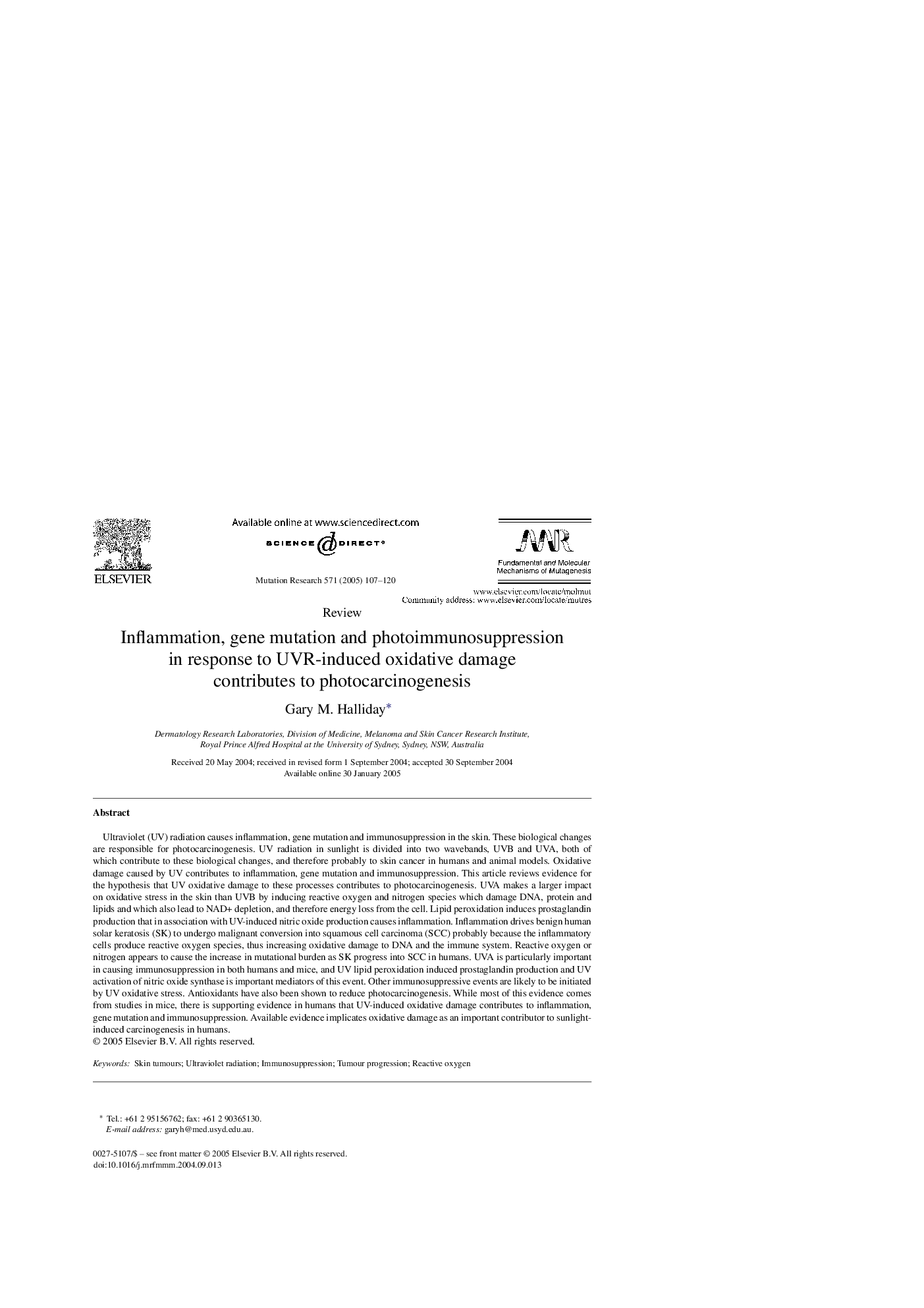| کد مقاله | کد نشریه | سال انتشار | مقاله انگلیسی | نسخه تمام متن |
|---|---|---|---|---|
| 9909156 | 1548437 | 2005 | 14 صفحه PDF | دانلود رایگان |
عنوان انگلیسی مقاله ISI
Inflammation, gene mutation and photoimmunosuppression in response to UVR-induced oxidative damage contributes to photocarcinogenesis
دانلود مقاله + سفارش ترجمه
دانلود مقاله ISI انگلیسی
رایگان برای ایرانیان
کلمات کلیدی
موضوعات مرتبط
علوم زیستی و بیوفناوری
بیوشیمی، ژنتیک و زیست شناسی مولکولی
تحقیقات سرطان
پیش نمایش صفحه اول مقاله

چکیده انگلیسی
Ultraviolet (UV) radiation causes inflammation, gene mutation and immunosuppression in the skin. These biological changes are responsible for photocarcinogenesis. UV radiation in sunlight is divided into two wavebands, UVB and UVA, both of which contribute to these biological changes, and therefore probably to skin cancer in humans and animal models. Oxidative damage caused by UV contributes to inflammation, gene mutation and immunosuppression. This article reviews evidence for the hypothesis that UV oxidative damage to these processes contributes to photocarcinogenesis. UVA makes a larger impact on oxidative stress in the skin than UVB by inducing reactive oxygen and nitrogen species which damage DNA, protein and lipids and which also lead to NAD+ depletion, and therefore energy loss from the cell. Lipid peroxidation induces prostaglandin production that in association with UV-induced nitric oxide production causes inflammation. Inflammation drives benign human solar keratosis (SK) to undergo malignant conversion into squamous cell carcinoma (SCC) probably because the inflammatory cells produce reactive oxygen species, thus increasing oxidative damage to DNA and the immune system. Reactive oxygen or nitrogen appears to cause the increase in mutational burden as SK progress into SCC in humans. UVA is particularly important in causing immunosuppression in both humans and mice, and UV lipid peroxidation induced prostaglandin production and UV activation of nitric oxide synthase is important mediators of this event. Other immunosuppressive events are likely to be initiated by UV oxidative stress. Antioxidants have also been shown to reduce photocarcinogenesis. While most of this evidence comes from studies in mice, there is supporting evidence in humans that UV-induced oxidative damage contributes to inflammation, gene mutation and immunosuppression. Available evidence implicates oxidative damage as an important contributor to sunlight-induced carcinogenesis in humans.
ناشر
Database: Elsevier - ScienceDirect (ساینس دایرکت)
Journal: Mutation Research/Fundamental and Molecular Mechanisms of Mutagenesis - Volume 571, Issues 1â2, 1 April 2005, Pages 107-120
Journal: Mutation Research/Fundamental and Molecular Mechanisms of Mutagenesis - Volume 571, Issues 1â2, 1 April 2005, Pages 107-120
نویسندگان
Gary M. Halliday,